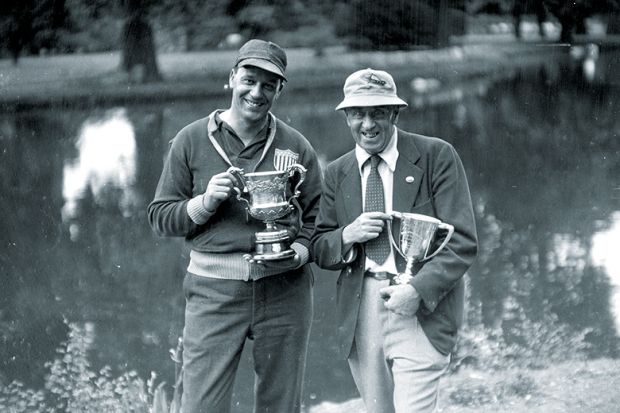For those interested in races, the pandemic has been a time of plenty.
First there was the spectacle, horrifying in retrospect, of tens of thousands of UK racegoers crowding into the Cheltenham Festival days before the country went into full lockdown.
Then there was the race to the bottom, as sport was replaced with the grim spectacle of charts tracking the worst-afflicted countries.
Now, we are all gripped by the race to find a vaccine. The University of Oxford leads, but other teams around the world are hot on its heels, notably in China where scientists have also published promising results from phase 2 trials.
If the race analogy sounds flippant, it is not meant to – the importance of this work could not be overstated. But science has always operated on principles of fierce competition, a race to make the discovery before a rival group scoops the prize and the glory.
In this week’s cover story, we consider the role that prizes play in that process, the inevitable biases and distortions, and whether prizes for individuals have had their day, in an age when science is more than ever a team effort.
On the latter point, it is worth noting that while some still follow the Nobels’ lead in focusing on a small number of winners, for others such restrictions are yesterday’s complaint.
But there is an argument that prizes have much deeper problems, reinforcing old hierarchies and entrenching biases that are not only unfair but that damage science itself.
Have prizes become “ways for friends to reward friends, rather than a true measure of scientific achievement”, as one scholar suggests? Are they just another manifestation of the old boys’ club (and if that sounds gendered, it is meant to)?
For those who take this view, there is also a trend in the way that prizes are heaped upon individuals who have already won prizes. In this way, the glory of a serial winner reflects on to the latest prize they have picked up (and, perhaps, its judges) rather than the other way round.
Perhaps the most important question in all of this is: what is the ultimate purpose of prizes?
Is it to incentivise discovery, in which case longitude-style prizes make most sense, or is it to get science in the news, in which case the story they typically tell is still a misleading one – that science is all about the lone, male genius.
And how problematic is it if, as in the case of the Nobel prizes, winning for a discovery in a particular field raises any one individual to almost godlike status, and a public pedestal from which they can then hold forth on any manner of topics about which they may know no more than the next person?
Prizes also play a role in national prestige, and there’s no doubt at all – as I have suggested in this column previously – that governments from Washington DC to London and from Beijing to Moscow would see a Covid-19 Nobel as a major national asset, alongside the obvious (and rather more pressing) life-preserving effects.
This could be seen as a good thing – another reason for governments that are themselves in intense competition to invest in research.
But it is also a matter for concern if nationalistic sentiments risk interfering in science itself, or the way in which its outputs benefit the whole world. Both are real risks at present.
In our news pages, we have an in-depth analysis of Covid-19 research, suggesting that there has been some shift to smaller teams working at accelerated pace during lockdown, but also that international collaboration remains healthy despite the geopolitical tension.
That is good for science and for the world.
Ultimately, though, competition will remain part of the scientific process, and it was interesting recently to see an argument put forward by the US economist Tyler Cowen that, viewed through the lens of research and clinical innovations, the UK is leading the world in its response to Covid-19.
“Critics of Brexit like to say that the UK is a small country of minor import,” he writes on Bloomberg.com. “Maybe so. In the meantime, the Brits are on track to save the world.”
For a country that has had some of the highest excess death rates recorded during the pandemic, that is a welcome reminder of what world-leading science actually means – and why it demands continued support.
POSTSCRIPT:
Print headline: The problem with prizes
Register to continue
Why register?
- Registration is free and only takes a moment
- Once registered, you can read 3 articles a month
- Sign up for our newsletter
Subscribe
Or subscribe for unlimited access to:
- Unlimited access to news, views, insights & reviews
- Digital editions
- Digital access to THE’s university and college rankings analysis
Already registered or a current subscriber? Login




